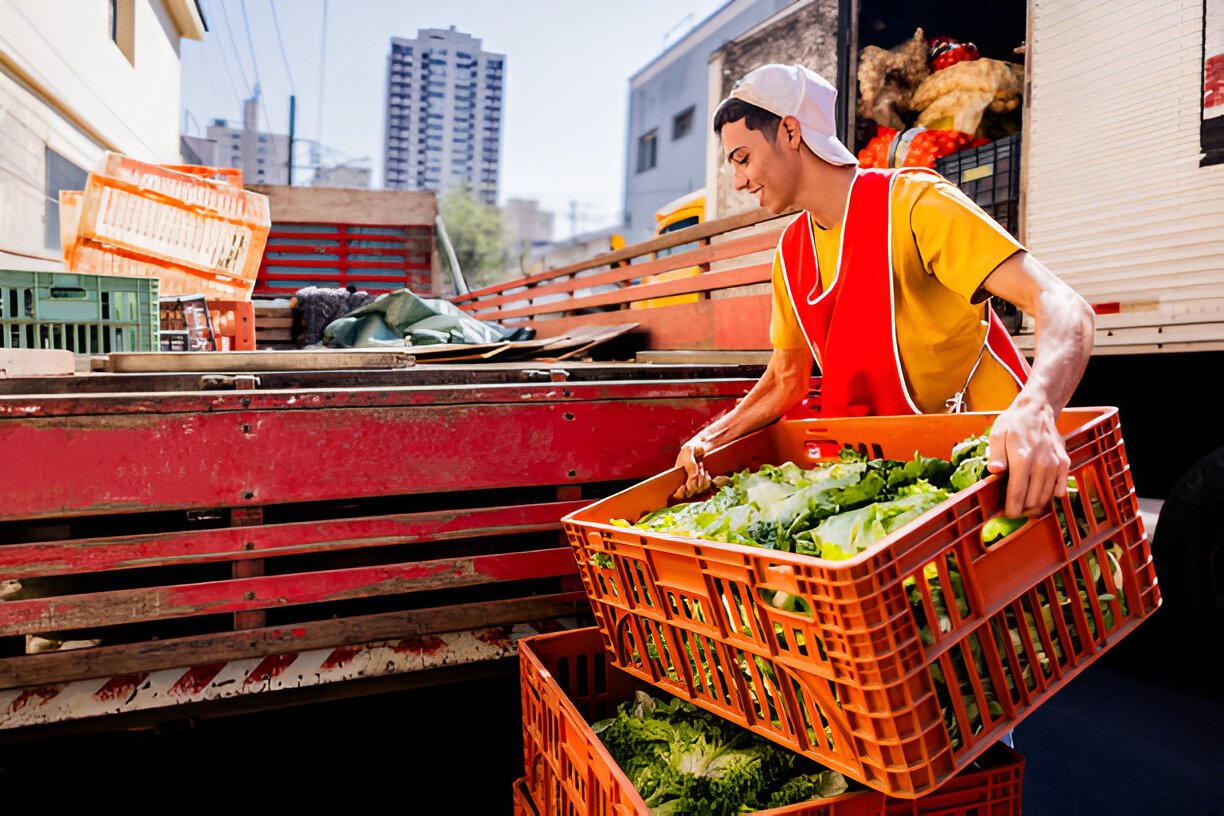Can we feed a growing global population without harming the planet? That is the problem that the food industry of today has to solve, and that is a problem that is changing the nature of supply chain development, delivery, and optimization. As climate change, scarcer resources, and pressure on companies to exercise ethical procedures because of consumers, sustainability of food logistics has now become a priority rather than a nice-to-have.
By the year 2025, the trend of sustainable food supply chains will no longer be a trend, and a new norm will emerge. It is no longer enough to have a good product since companies around the world are accountable for the environmental and social impact of the manner in which the product being created is sourced, produced, transported, and delivered.
To companies striving to succeed in this new environment, the answer is simple: create cleaner, smarter, and more responsible supply chains.
Why Sustainability Matters in the Food Supply Chain?
The food sector is amongst the greatest producers of greenhouse gas emissions and wastes. All the supply chain, including agricultural activities and long-term transportation methods, has an impact on the environment. Meanwhile, consumers are getting increasingly conscious about their food sources and their production.
It is not enough that they are given quality; they want accountability.
Companies that focus more on sustainability are currently becoming favorable among modern consumers, stores, and business partners around the globe. These are not companies keeping pace with the trends; they are the pacesetters of the future.
This is the reason behind the sustainability food supply chains being a competitive benefit in the food sector.
Reducing Waste Throughout the Chain
The waste of food is gigantic. The UN stated that about one-third of the food produced every year is wasted. A large portion of this goes to waste because of inefficiency in harvesting, storing, transporting, and retailing.
Companies are deploying smarter logistics to address this. An example is a cold chain monitoring system that constantly checks on temperature-sensitive products to ensure that they are good by the time they reach their final destination. Demand forecasting using AI assists suppliers and retailers in ordering exactly what should be in stock to prevent the production of excess stocks that need to be discarded.
One of the quickest and most effective means of creating more sustainable food supply chains, as well as becoming more economical, is waste reduction.
Embracing Eco-Friendly Packaging and Transport
Packaging also largely contributes to sustainability. Although convenience and durability are important, the environmental impact of materials used is also critical. To reduce their footprint, many brands are switching to more eco-friendly solutions through recyclable, biodegradable, or reusable packaging methods.
Another microscopic aspect is transportation. Shipping long distances is a major cause of carbon dioxide emissions. In response to this problem, companies are investing in gas-efficient cars, electric delivery fleets, and route optimization software that reduces redundant traveling.
Such changes are not only environmentally conscious but also reduce overall costs in the long run, making them a wise corporate choice.
Supporting Ethical and Local Sourcing
A sustainable supply chain does not end on the environmental factors only, but the way and the origin of productions are sourced. Consumers are increasingly attaching importance to ethically obtained ingredients, fair working conditions, and transparent relations with suppliers.
It is also getting companies to work with local farmers and regional producers to shorten transport distances and alleviate the local economy’s burden. This not only benefits the planet but also creates fresher products and stronger communities.
An increase in the use of ethical sourcing in your operations enhances brand integrity and earns the customer’s and partners’ trust.
Leveraging Technology for Greener Practices
Technology (especially modern technology) is one of the drivers of sustainable food supply chains. Whether it is the amount of energy consumed in warehouses or actual time delivery routes and supplier emissions, IoT sensors, data analytics, and AI come to the rescue.
To give one example, smart inventory systems can prevent overstocking, and blockchain can track every product’s journey to guarantee transparency and adherence to sustainability targets.
Capable of using the power of tech, companies can quantify, control, and constantly increase their sustainability outcomes.
Meeting Regulatory and Retailer Requirements
Governments and other major retailers are increasingly demanding that suppliers demonstrate their sustainability. Carbon footprint reporting, green packaging requirements, biofuels requirements, and greenhouse gas reporting are just some of the issues that organizations now have to deal with as a key part of doing business.
Business firms that have been proactive in aligning themselves with these requirements are evading penalties, getting ahead of the regulations, and emerging as favorites in a competitive market.
Building sustainability food supply chains is not only about values—it’s also about staying legally compliant and commercially viable.
Consumer Expectations Are Leading the Way
The consumers of the day, and particularly the younger generations, are very conscious of the environmental and social impact of commercially purchased items. They tend to patronize brands that concur with their views and do not hesitate to expose those companies that do not preach by action.
Sustainable packaging, traceability of ingredients, and information regarding sourcing are no longer something that can be provided as an extra option. It is expected.
By listening to such expectations and adjusting their business accordingly, businesses not only generate brand loyalty but also future-proof themselves in a values-based business environment.
The McLane Global Perspective
At McLane Global, we recognize our role in building a more sustainable future. As a global food distributor and logistics expert, we understand that every mile, every shipment, and every decision contributes to the bigger picture.
From cold chain optimization and smart inventory solutions to ethical sourcing and eco-friendly packaging, we’re helping our partners align their operations with long-term sustainability goals. For us, creating a better supply chain is about more than efficiency—it’s about responsibility.
Final Thoughts
Sustainability is no longer a trend, it’s a necessity. As the global food industry evolves, the pressure to build ethical, transparent, and environmentally friendly supply chains continues to grow.
By focusing on waste reduction, smarter logistics, ethical sourcing, and innovation, companies can transform their operations into engines of positive change. And in doing so, they not only protect the planet—they build stronger businesses. At McLane Global, we help food brands grow—responsibly.






Leave a Reply